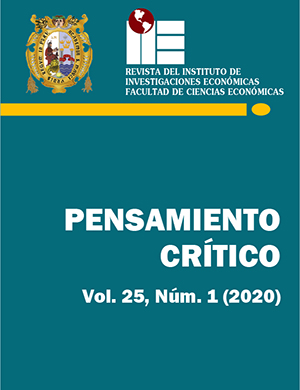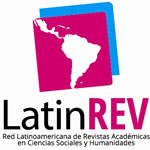Great mining and poverty from the poor: Las Bambas, Apurimac
DOI:
https://doi.org/10.15381/pc.v25i1.16621Keywords:
Subjective poverty, abilities, well-being and miningAbstract
The investigation had three objectives; The first was to identify the variables that affect the self-perception of poverty of the residents of the Challhuahuacho district; then analyze the relationship of the displaced population and their self-perception of poverty; The third objective was to explore the possible contribution of the Las Bambas mining project to the subjective well-being of the local population. The research design was non-experimental and cross-sectional, descriptive correlational type. The study population was the heads of household, with a sample of three hundred and fifty, selected by simple probabilistic sampling. To collect the information, a questionnaire referring to personal information, the environment and the level of satisfaction in various domains of life was applied. The results obtained for the first objective show that the variables: education, displacement, health satisfaction, job satisfaction, satisfaction with family income and satisfaction in maintaining dependents adequately; significantly affect the subjective poverty of the residents of Challhuahuacho. Regarding the second objective, it is evident that there is a significant inverse relationship between subjective poverty and the condition of being displaced. Finally, according to the results, the Las Bambas mining project contributes little to subjective well-being.
JEL: I31, I32, I38.
Downloads
Published
Issue
Section
License
Copyright (c) 2020 Alipio Orco Diaz

This work is licensed under a Creative Commons Attribution-NonCommercial-ShareAlike 4.0 International License.
THE AUTHORS RETAIN THEIR RIGHTS:
a. The authors retain their trademark and patent rights, and also on any process or procedure described in the article.
b. The authors retain the right to share, copy, distribute, execute and publicly communicate the article published in Pensamiento Crítico (for example, place it in an institutional repository or publish it in a book), with recognition of its initial publication in Pensamiento Crítico.
c. The authors retain the right to make a subsequent publication of their work, to use the article or any part of it (for example: a compilation of their works, notes for conferences, thesis, or for a book), provided they indicate the source of publication (authors of the work, journal, volume, number and date).















